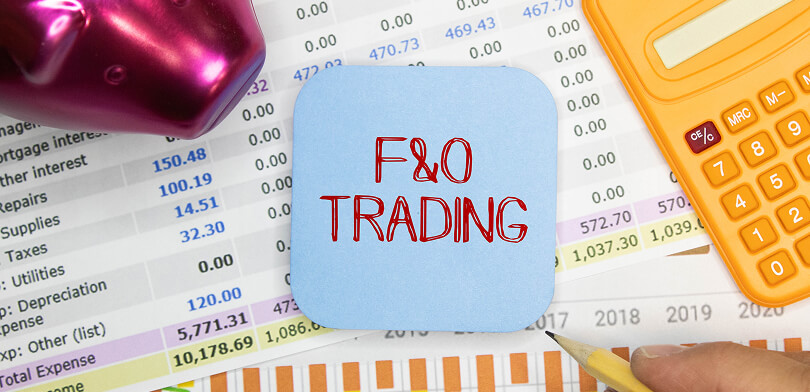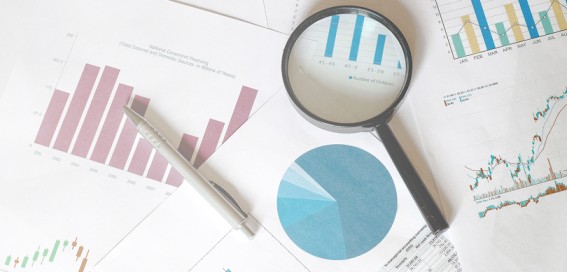Understanding the income tax implications for intraday trading in India is of utmost importance for traders. Intraday trading involves buying and selling financial instruments within the same trading day, aiming to make quick profits from short-term price fluctuations.
That said, traders need to be aware of the tax obligations of this type of trading. Failure to comply with the tax regulations can result in penalties, fines, and even income tax audits. By understanding intraday trading tax rules and regulations, traders can ensure they fulfil their tax obligations accurately and avoid legal complications.
Topics Covered:
- Know about income Tax on Intraday Trading
- Intraday Trading Income Tax Rules
- How are Intraday Losses Treated?
- Intraday Trading Tax Calculation
- Things to Remember
- Conclusion
Know about income Tax on Intraday Trading
Regarding income tax on intraday trading, certain broad principles apply to this trading activity. In India, intraday trading falls under the category of speculative business income. This means that any profits or gains from intraday trading are subject to income tax as per the prevailing tax rates.
Intraday traders must maintain proper records of their transactions, including details such as the date and time of each trade, the purchase price, the sale price, and any other relevant expenses incurred during the trading process.
These records are essential for accurately calculating the taxable income from intraday trading and reporting it in the appropriate tax return forms. Intraday traders may also be subject to income tax audits by the tax authorities to ensure compliance with the tax regulations.
Begin your investing journey today. Your Demat account is the first step.
Intraday Trading Income Tax Rules
In addition to the broad principles mentioned earlier, there are specific income tax rules and regulations that intraday traders need to be aware of:
- Intraday trading falls under the purview of short-term capital gains tax. This means that any profits from intraday trading are treated as short-term capital gains and are subject to tax at the applicable rates. Note that short-term capital gains are added to the individual’s taxable income and taxed accordingly.
- Intraday traders must file their income tax returns using the appropriate forms. This includes reporting the overall trading income, capital gains, and other relevant details. Accurately report the income from intraday trading to ensure compliance with tax laws.
- Intraday traders may also be subject to income tax audits, where the tax authorities scrutinise the trader’s financial records and transactions to verify compliance.
How are Intraday Losses Treated?
When it comes to intraday trading tax, the treatment of losses incurred is an important aspect to consider under Indian tax laws.
Intraday losses are considered speculative business losses and can be offset against any other speculative income, such as profits from other speculative trades. However, these losses cannot be set off against any other sources of income, such as salary or rental income.
Recommended Read : Strategies to Capitalise on Intraday Trading
Furthermore, if the losses cannot be fully set off in the current financial year, they can be carried forward for four years and set off against any future speculative income. Intraday traders must maintain proper records and documentation of their trading activities, including details of losses incurred, to substantiate their claims during tax assessments.
Failure to accurately report and document losses may lead to penalties or income tax audits, where the tax authorities may scrutinise the trader’s financial records to ensure compliance with tax laws.
Intraday Trading Tax Calculation
Tax Calculation for Intraday Trading in India requires a clear understanding of how speculative business income, which includes intraday trading gains and losses, is taxed. This is distinct from capital gains taxation and has its own specific guidelines.
Steps for Tax Calculation in Intraday Trading
- Calculate Total Turnover Add all positive and negative differences from intraday trades to determine total turnover, a key factor in assessing if tax audit provisions apply.
- Compute Speculative Business Income Deduct trading-related expenses such as brokerage charges and transaction costs from the total turnover to calculate the speculative business income.
- Set Off Against Speculative Income Net profits from intraday trading can be set off against other speculative incomes but not against income from other sources.
- Carry Forward Losses Net losses can be carried forward for four years and set off against future speculative profits, reducing tax liability in subsequent years.
Example of Tax Calculation
Consider Mr Ravi Kumar, an intraday trader with a total turnover of INR 10,00,000 during a single financial year. His trading-related expenses amount to INR 2,00,000. Therefore, his net profit from intraday trading is INR 8,00,000 (10,00,000 – 2,00,000).
- Suppose Mr Kumar has another speculative income of INR 2,00,000. In that case, he can offset this against his profit, reducing his taxable income from intraday trading to INR 6,00,000 (8,00,000 – 2,00,000).
- Conversely, if Mr Kumar incurs a net loss of INR 2,00,000 in intraday trading, he can carry this loss forward for four years. In future profitable years, he can set off this loss against the profit, thereby lowering his tax burden.
Suggested Read: How Equity Shares Are Taxed
For intraday traders, maintaining accurate records and documentation of all transactions is crucial for proper tax calculation and compliance.
Things to Remember
When it comes to intraday trading tax, there are several key considerations and tips that traders should keep in mind to ensure compliance and minimise any potential tax liabilities:
- Maintaining detailed records of all intraday transactions, including trade statements, brokerage statements, and transaction receipts, is crucial. This documentation will help accurately calculate the total turnover and determine the speculative business income.
- Traders should be aware of the tax audit provisions, as exceeding a certain turnover threshold may require undergoing an income tax audit. Also, consult a tax professional to understand the specific thresholds and requirements for your trading activities.
- Traders should consider availing the benefits of tax deductions available for expenses related to intraday trading, such as brokerage charges and transaction costs. Keeping track of these expenses will help reduce the taxable income and ensure they take full advantage of available deductions.
- It is advisable to file your income tax return on time and accurately report all gains and losses from intraday trading.
Additionally Read: Meaning of Demat Account
Conclusion
Understanding and complying with income tax regulations in intraday trading is essential for traders to avoid potential legal and financial consequences. By maintaining accurate records of intraday transactions and seeking guidance from tax professionals, individuals can calculate their turnover and determine speculative business income. Moreover, opening a free demat account can streamline the process of managing securities and facilitate seamless trading. Staying informed and ensuring compliance with income tax regulations will contribute to a successful and sustainable intraday trading journey.

















